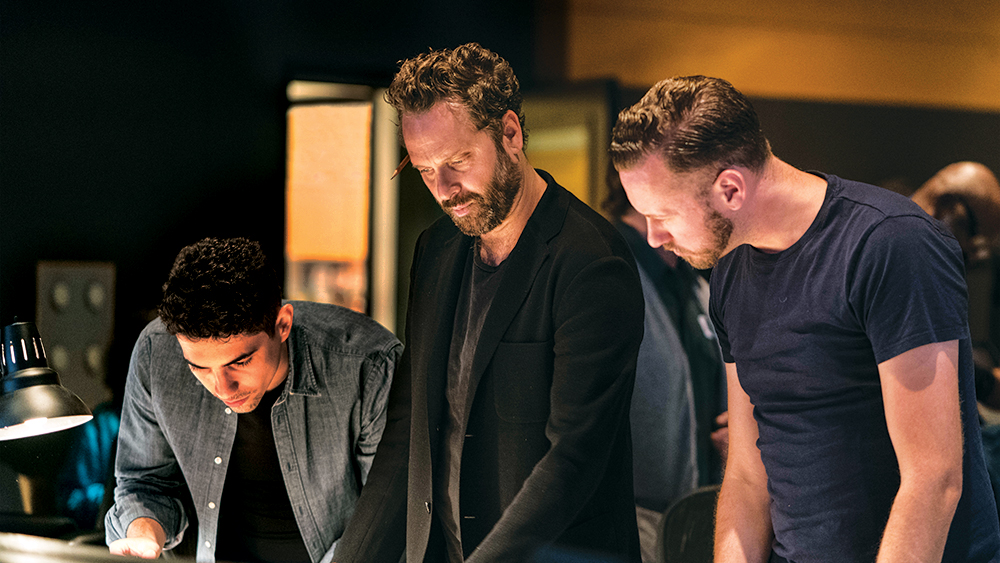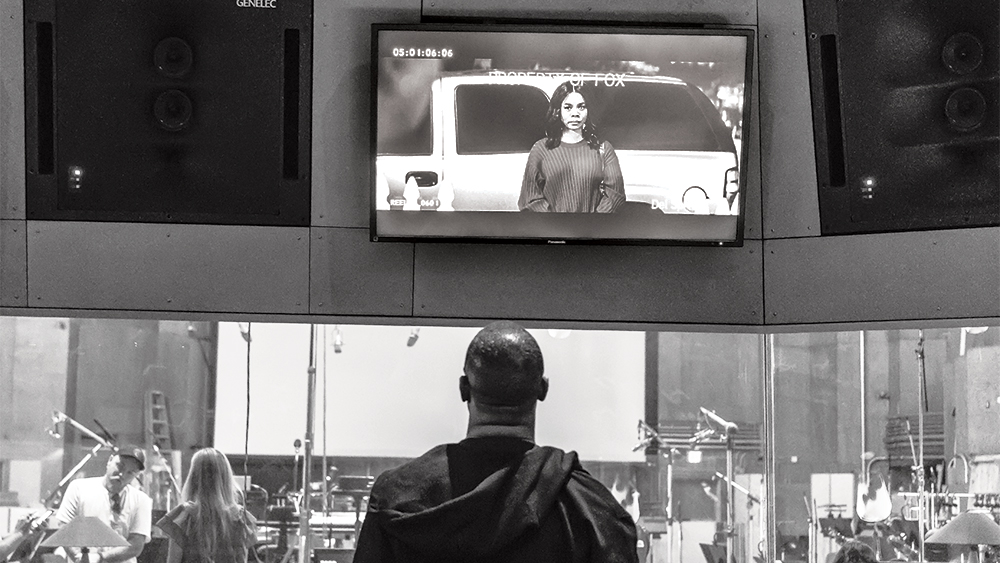‘The Hate U Give’ Score Sets Mood in World of Racial Violence
By Jon Burlingame
LOS ANGELES (Variety.com) – It’s a June morning at 20th Century Fox, and the scenes flashing on the big screen in the Newman Scoring Stage are disturbing: White police officers are hurling tear gas into a crowd of mostly black protesters. Forty musicians supply the mood — at first unsettling, then intense, finally melancholy.
Composer Dustin O’Halloran, at a mixing board behind the glass, tells his string players via intercom that “the build is really important in this whole section, but those first four bars should start out kind of fragile.” Conductor Nicholas Jacobson-Larson leads the musicians through another take of cue 6M5. Piano and synthesizers, already recorded, add drama.
The film is Fox’s “The Hate U Give,” out Oct. 5 and likely to be among the most talked-about films of the year — and an Oscar contender. Music, says director George Tillman Jr., was critical. “We’re doing a movie about police brutality and about identity,” he notes. The film revolves around the reaction of a teen to the death of her best friend, shot by a police officer during a traffic stop. It’s the incident that triggers the protest. “Our performances were honest and authentic,” adds the director, “so I needed the score to feel natural and realistic, not too Hollywood.”
He recruited O’Halloran based on his Oscar-nominated score for 2016’s “Lion.” Speaking with Variety a few weeks later from Berlin (where he is working on his next film, “The Art of Racing in the Rain”), the composer explains that Tillman’s film tackles complicated themes. “It’s a delicate score,” he says. “It had to breathe life into the characters and the bigger picture of the subject in a way that was honest and graceful, yet not feel manipulative in any way.”
O’Halloran, an accomplished pianist, played all the keyboard parts himself. “It’s a singular story from the perspective of Starr [played by Amandla Stenberg],” he says. “And I always find piano, such an expressive instrument, does a great job of telling the story from one person’s perspective.”
Modular analog synths made the story “feel very contemporary,” O’Halloran adds, as well as helping it blend with the hip-hop tracks that dot the soundtrack throughout.
Those tracks include two by Tupac Shakur, whose famous tattoo “Thug Life” gave author Angie Thomas her title for the novel (“ Little Infants Fucks Everyone”) on which the film is based. “They set the vibe of the character,” says music supervisor Season Kent.
| Composer Dustin O’Halloran is flanked in studio by additional music composer Francesco Le Metre and conductor Nicholas Jacob-Larson. |
Representatives of Shakur’s estate attended a screening. “They were really excited, definitely on board,” Kent says. Other artists on the soundtrack, which Def Jam is releasing on Oct. 12, include Kendrick Lamar, Pusha T and Travis Scott. Original songs come courtesy of London-raised German-American singer Arlissa, whose “We Won’t Move,” produced by L.A.-based duo Rice N’ Peas (expect it to be submitted for Oscar consideration), is sung under the finale of the film. Bobby Sessions contributes the title track.
How to musically treat Starr’s two worlds — the mostly white school she attends and the black neighborhood she calls home — was another challenge. But, as Kent points out, “everyone listens to hip-hop. It’s all really one [culture], which is the beautiful thing about music.”


